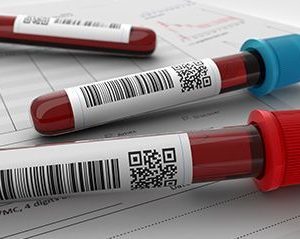- Recognizing the Signs of Hypothyroidism
- 10 Strategies to Overcome Insomnia
- Could Artificial Sweeteners Be Aging the Brain Faster?
- Techniques for Soothing Your Nervous System
- Does the Water in Your House Smell Funny? Here’s Why
- Can a Daily Dose of Apple Cider Vinegar Actually Aid Weight Loss?
- 6 Health Beverages That Can Actually Spike Your Blood Sugar
- Treatment Options for Social Anxiety Disorder
- Understanding the Connection Between Anxiety and Depression
- How Daily Prunes Can Influence Cholesterol and Inflammation
Scientists Discover Why Blood Type May Matter for COVID Infection

A new study provides further evidence that people with certain blood types may be more likely to contract COVID-19.
Specifically, it found that the new coronavirus (SARS-CoV-2) is particularly attracted to the blood group A antigen found on respiratory cells.
The researchers focused on a protein on the surface of the SARS-CoV-2 virus called the receptor binding domain (RBD), which is the part of the virus that attaches to the host cells. That makes it an important target for scientists trying to learn how the virus infects people.
In this laboratory study, the team assessed how the SARS-CoV-2 RBD interacted with respiratory and red blood cells in A, B and O blood types.
The results showed that the SARS-CoV-2 RBD had a strong preference for binding to blood group A found on respiratory cells, but had no preference for blood group A red blood cells, or other blood groups found on respiratory or red cells.
The SARS-CoV-2 RBD’s preference to recognize and attach to the blood type A antigen found in the lungs of people with blood type A may provide insight into the potential link between blood group A and COVID-19 infection, according to the authors of the study. It was published March 3 in the journal Blood Advances.
“It is interesting that the viral RBD only really prefers the type of blood group A antigens that are on respiratory cells, which are presumably how the virus is entering most patients and infecting them,” said study author Dr. Sean Stowell, from Brigham and Women’s Hospital in Boston.
“Blood type is a challenge because it is inherited and not something we can change,” Stowell said in a journal news release. “But if we can better understand how the virus interacts with blood groups in people, we may be able to find new medicines or methods of prevention.”
These findings alone can’t fully describe or predict how coronaviruses would affect patients of various blood types, the researchers noted.
“Our observation is not the only mechanism responsible for what we are seeing clinically, but it could explain some of the influence of blood type on COVID-19 infection,” Stowell and his team said.
More information
The U.S. Centers for Disease Control and Prevention has more on COVID-19.
SOURCE: Blood Advances, news release, March 3, 2021
Source: HealthDay
Copyright © 2026 HealthDay. All rights reserved.










